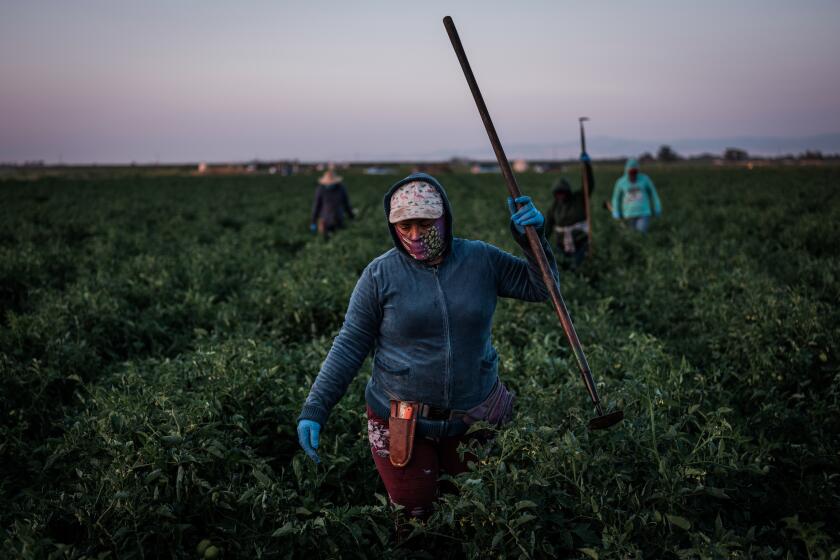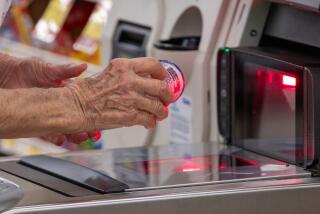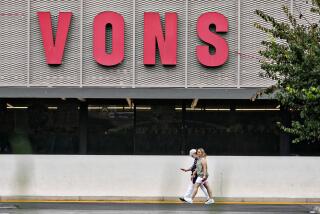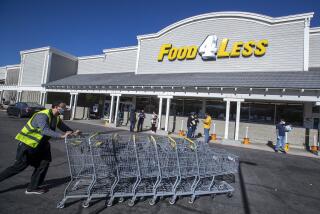I got COVID-19 while working at Ralphs. People like me need a voice in workplace safety
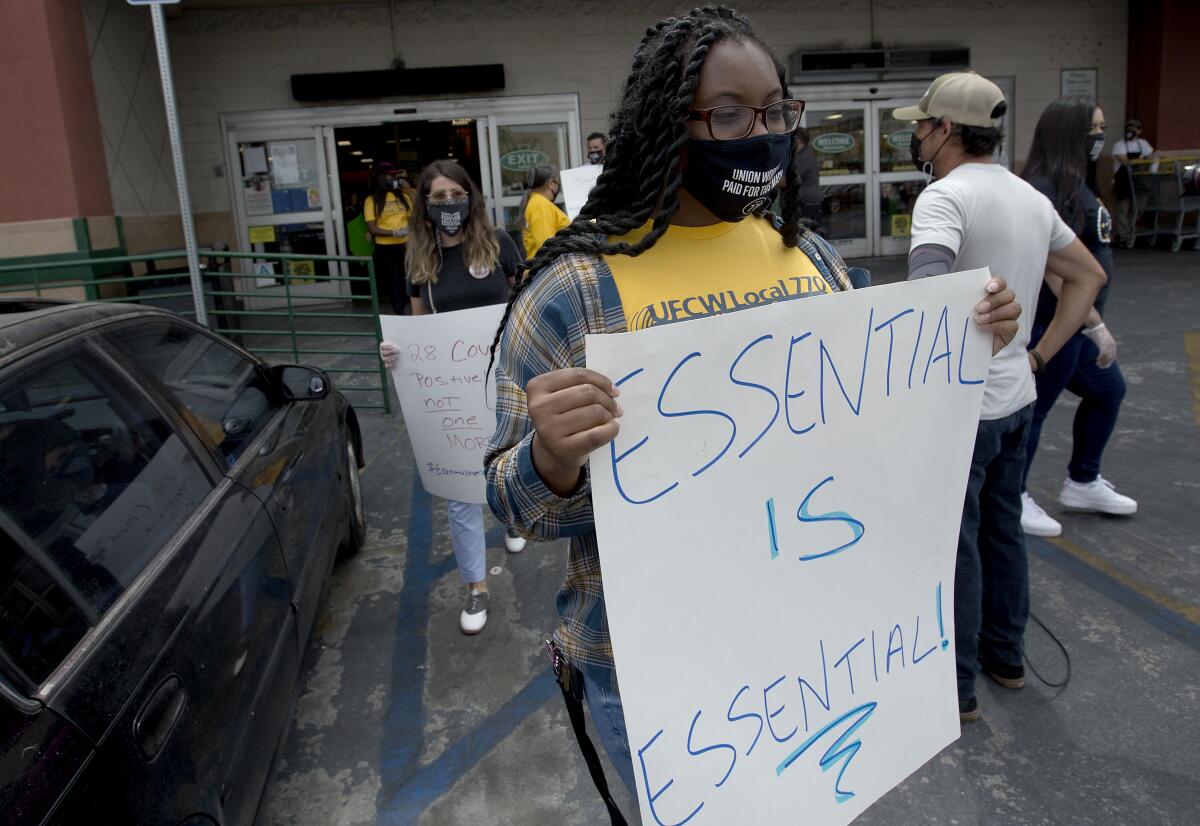
- Share via
After spending seven weeks isolated in my bedroom sick with COVID-19, I stood in front of the Ralphs grocery store where I work, bracing to return. It took me about five minutes to make the decision to cross the threshold and go back to work. I wasn’t sure I could do it.
For 20 years I have been a Ralphs employee, working at different stores throughout Los Angeles. I work the night shift, cleaning, stocking and preparing the store for the next day. I believe I caught COVID-19 at work.
In the days before I got sick, the store was exceptionally crowded. I remember it clearly because it was packed as customers stocked up for the Jewish holiday the next day. My husband is Jewish and we observe all the holidays. That day I started to feel sick. I went home early and slept all day until my youngest daughter woke me at 7 p.m., nine hours after I usually wake up after a night of work. I couldn’t breathe. I was hot. My husband rushed me to the ER. I took a coronavirus test. It was positive.
Our house is usually alive with energy. My mother, my husband and me, our four daughters, one granddaughter, three dogs, four turtles and lots of birds live together. My breakfast with my 85-year-old mother is a daily ritual.
As I fought the disease while locked in a bedroom, my family cared for me at a distance. The first four weeks were the worst. I was dizzy, but I couldn’t sleep. I lost my sense of taste and smell. My entire body ached with a deep pain.
After the worst had passed, I felt depressed — trapped inside of four walls inside my own house. I couldn’t see my family. My children would sit outside my door while I sat in the farthest corner of my room to talk with them for a few minutes. My mother would yell good morning through my window every day. Afterward, I would be in tears. I couldn’t hug members of my family and I was terrified they would get sick.
A few weeks after I recovered, I was back on the grocery store floor. Now at least once a week, I encounter someone who swears at me or seems ready to hurt me simply because I ask them to wear a mask.
The state cannot slow the spread of the coronavirus and return to some sense of normalcy without keeping workers safe.
In Los Angeles, masks have been required since April. But it’s not just the policies that matter. Kroger, which owns both Ralphs and Food 4 Less, has policies to encourage distancing and limit the number of customers in the store. But these policies are unevenly enforced. I have seen carts that are not always sanitized. I have seen check stands go uncleaned. The stores are often crowded. Customers wear masks as “chin straps” all the time.
If customers aren’t wearing masks, managers are supposed to approach them. But managers aren’t always there late at night, leaving workers like me sometimes vulnerable. When a Ralphs coworker and friend, who is a manager, asked two male customers to wear masks, one attacked her with a shopping cart and drew blood. After she defended herself, Kroger suspended her.
More than 1,175 members of my union, the United Food and Commercial Workers Local 770, have had confirmed cases of COVID-19. Four have died. Just last week two more workers at my store got infected. From where I stand, Kroger, the largest grocery store chain in the U.S., needs to do more to enforce safety measures.
By listening to workers, I believe Kroger could slow the spread of the virus. I know my store inside and out. With support from the top, workers like me could help ensure safety protocols are being followed. Confrontations between employees and customers would be minimized if staffing were sufficient to ensure no one is allowed into the store without a mask. And if Kroger instituted regular testing for workers, infections would drop even more.
When I return from my shift at the grocery store, I immediately jump in the shower and wash my clothes without touching anyone or anything. After being so sick, I want to do everything possible to keep more people from getting it.
I learned that Los Angeles County is considering establishing worker-led public health councils that would allow employees to report their coronavirus safety concerns without fear of retaliation. Grocery workers know the risks and the potential solutions. Our input could help reduce the number of infections at grocery stores. Establishing councils would give us a seat at the table.
By including its enormous workforce, Kroger could do a better job of protecting the lives of its employees and customers — and help stop the spread of this deadly virus.
Maria Hernandez lives in Los Angeles.
More to Read
A cure for the common opinion
Get thought-provoking perspectives with our weekly newsletter.
You may occasionally receive promotional content from the Los Angeles Times.
